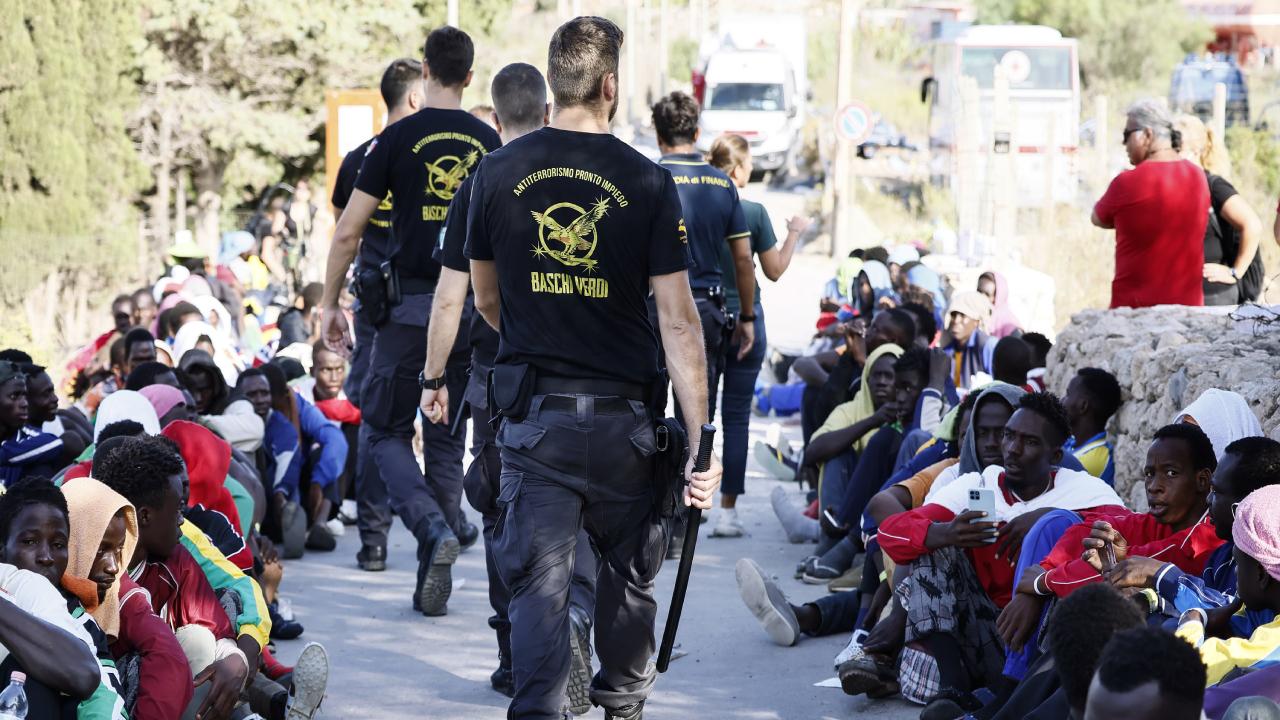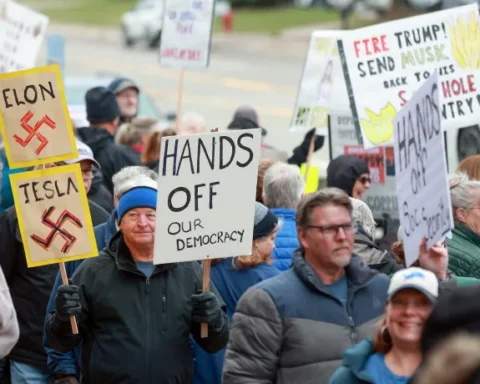Ordinary Europeans are starting to admit what their leaders won’t: civil unrest may be closer than anyone dares to say.
Two months ago, the English podcast host Louise Perry hosted David Betz, a professor at King’s College, London, and an expert in civil wars. The topic? “The Coming British Civil War.” Betz argues that the United Kingdom now has all the traditional hallmarks of a society on the verge of violent civil conflict. He mentions the collapse of faith in British institutions, the two-tier justice system, Islamic radicalization, and the polarization wrought by official multiculturalism, among other factors.
The YouTube version of the interview has had nearly 200,000 views—so many that Telegraph columnist Tim Stanley noticed, writing in his April 3 column that events both in Britain and on the European continent (he cites a French court banning Marine Le Pen from running for the presidency) are driving things to a reckoning.
Writes Stanley:
Every conspiracy theory is confirmed, and without a democratic outlet for anger—seeing their aspirations limited and being too poor to emigrate—where else will a militant faction of angry whites go but to violence?
Nearly every educated English person I know under the age of forty is seeking to emigrate, having lost hope that their country has the wherewithal to pull out of its cultural and economic crisis. In Oxford recently, an American student told me, “If the ruling class here openly hated the British people, it’s hard to know what they would be doing differently.”
Spending a week in France last month, I recalled the scandalous open letter that 20 retired French generals and 1,000 active duty service members released in 2021, warning that their country was headed to civil war unless the government acted firmly against Islamic radicals in the suburbs, and turned away from divisive policies driven by so-called “anti-racism.”
In a number of private conversations with ordinary French people—this was before the Le Pen verdict—I brought up the Betz interview (none had heard about it), and asked them if they foresaw civil war coming to France. Nearly all of them said yes. They said so with an unnerving sense of calm, as if they accepted it as a matter of course. When I complimented one couple on their country, and told them that one day I would like to live in France, they responded in unison, “No!” Stay in Hungary, they said; you’ll be safe there.
You would never know from the mainstream media that this sort of sentiment is bubbling among the population of Europe and the UK. In his interview with Perry, Betz says that many people suffer from what he calls “normalcy bias”—that is, the belief that such a thing cannot happen here. Oh, but it can!
After the fall of the Soviet Union in 1992, violent civil conflicts broke out in some of the former Soviet republics, once the majority non-Russian populations ceased to fear the Communist yoke. They weren’t formal civil wars, with two armies lined up against each other. These were often spontaneous, undirected spasms of orgiastic violence—exactly what Prof. Betz says civil war in the UK and in Europe would be like. He also says that given mass media, especially social media, a civil war sparking off in one country would likely trigger them almost instantly in others.
If you want an idea of how hideous this kind of thing can be, read the testimonies in Secondhand Time: The Last Of The Soviets, a riveting oral history of the fall of the USSR. Ordinary people opened up to writer Svetlana Alexievich with their traumatic stories of what life in the 1990s and 2000s was like in the ruins of the Soviet state.
Russians, Armenians, and Tajiks living in the ethnic republics found that their longtime friends and neighbors turned on them overnight.
This is what can easily happen when the law disappears, and people feel at liberty to act out their darkest passions. It’s human nature: back to blood, or religion, or class solidarity. Don’t think for one second that Europeans are not like the Soviets: the history of the Holocaust reveals that Germans, Poles, and others turned viciously on their Jewish friends and neighbors when permitted to. The skull is always just below the skin.
J.D. Vance angered many European elites in his Munich speech when he warned them that the greatest security threats their countries face are within—and that their attempt to deny them by squelching free speech was only making matters worse. This—the danger not of war with other nations, but of civil war—is precisely what he was talking about.
In that blockbuster podcast interview, Prof. Betz says that “normalcy bias” is especially strong in Britain, which, unlike other European countries, has been relatively peaceful. Today, though, there is no reason to believe that the past predicts the future. Many of the cultural traditions that kept the English peaceable have dissolved in the face of modernity—especially multiculturalism.
“Multiculturalism has drained our nation’s social capital. It’s encouraged factionalism and polarization, both of which are up massively,” Betz says. “The belief of people in pre-political loyalty has been shattered by the triumph of identity politics in our society. So as a result of which, we see that nativist sentiments are increasingly manifested in a narrative of downgrading or displacement that is one of the most powerful causes of civil conflict.”
“Downgrading” and “displacement” are technical terms used in civil war scholarship to describe the feeling among native peoples that they are losing ground in their own country to rival groups. This is what the French writer Renaud Camus means by his concept of the Great Replacement.
This did not start in Britain with the current Labour government, says Betz, but the Starmer administration’s mad policies—in particular, its attempts to squelch criticism of the Pakistani rape gangs scandal—are a textbook example of how to provoke civil war. The Starmer government is destroying its own legitimacy through “failure to secure the country, the failure to secure its borders against what can only be described as a large-scale border raid, and the failure to protect children, the most vulnerable people in our society from the most extraordinary and grotesque predation on very large scale.”
What’s happening in Britain is happening all over western Europe. Alas, the professor thinks it’s too late to stop civil war in his own country. What about the rest of Europe? If Betz is right about the likelihood that civil war in one European country would likely set it off in others, that question might be in vain. If so, then history will record that the great villains of Europe’s 21st-century civil wars will not be the natives, or the Muslims, or the migrants, but rather the very social and political elites who spent decades assembling the tinder for this bonfire.
Source: https://europeanconservative.com/articles/commentary/is-civil-war-coming-to-europe/






